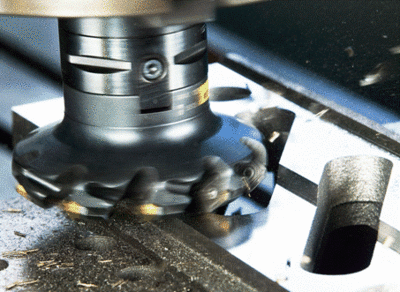What Affects Material Machining on CNC machine

1. Physical Properties:
1. Thermal Conductivity (K): Materials with high thermal conductivity allow for higher cutting speeds (Vc). For example, the cutting speeds when using carbide tools on the following materials are:
• Carbon Steel: K = 48.2~50.2 W/m·K, Vc = 100~150 m/min
• High-Temperature Alloys: K = 8.4~16.7 W/m·K, Vc = 7~60 m/min
• Titanium Alloys: K = 6.3~9.6 W/m·K, Vc = 15~50 m/min
2. Coefficient of Linear Expansion (α): Affects the material’s thermal expansion and contraction, which in turn affects machining accuracy.
2. Chemical Composition:
The chemical composition and ratio of materials are fundamental factors influencing their mechanical properties, physical properties, heat treatment characteristics, metallographic structure, and machinability. For example:
• C: An increase in carbon content increases hardness and strength.
• Ni: Ni improves heat resistance but significantly lowers thermal conductivity. When Ni > 8%, it forms austenitic steel, leading to severe work hardening.
• V: As the content of vanadium increases, the material’s grindability worsens.
• Mo: Mo improves material strength and toughness but reduces thermal conductivity.
• W: W improves thermal strength, high-temperature strength, and both room-temperature hardness and strength, but significantly reduces thermal conductivity.
• Mn: Mn improves hardness and strength but reduces toughness. When Mn > 1.5%, machinability deteriorates.
• Si: Si reduces thermal conductivity.
• Ti: Titanium is prone to forming carbides, which negatively affect machinability.
• Other elements like Cr, O, S, P, N, Pb, Cu, Al, etc., also affect machinability.
3. Mechanical Properties:
1. Hardness and Strength: Materials with moderate hardness and strength have better machinability. The higher the hardness and strength, the poorer the machinability. For example, normalized 45 steel: HB200, σb 640 MPa; quenched 45 steel: HRC45, σb 2100~2600 MPa. Fine impurities in metal materials, such as Al₂O₃, SiO₂, TiO₂, etc., also worsen machinability due to their high microhardness, causing mechanical wear on tools.
2. Toughness (αk) and Plasticity (δ): Materials with higher toughness and plasticity require more force, undergo greater deformation, and generate more heat during machining, leading to poorer machinability.
3. Elastic Modulus (E): The elastic modulus represents the material’s stiffness. A high elastic modulus means the material is less likely to undergo elastic deformation under external forces. However, materials with low elastic modulus experience more elastic recovery during cutting, causing higher tool friction and making cutting more difficult. For example, soft rubber: E = 2~4 MPa; 45 steel: E = 200,000 MPa; Mo material: E = 500,000 MPa.
4. Metallurgical Structure:
1. Ferrite: Ferrite has low hardness and strength (HB50~90, σb = 190~250 MPa) but high plasticity and toughness (δ = 40~50%). It tends to form built-up edges during machining, which negatively affects machinability.
2. Pearlite: Spherical pearlite has good machinability (e.g., 45 steel).
3. Carbide: Carbides have high hardness (HRC 66–70) but are very brittle (αk = 30–35 MPa). The increase in force tends to cause chipping, making cutting difficult.
4. Austenite: Austenite has low hardness (around HB200), but high plasticity and toughness. However, work hardening and severe cold welding between the tool and chips can make machining difficult. Examples include 1Cr18Ni9Ti and high-temperature alloys.
5. Martensite: Quenched steel belongs to this structure. It has high hardness and brittleness, and its relative machinability is 1/3 to 1/10 of 45 steel. |
